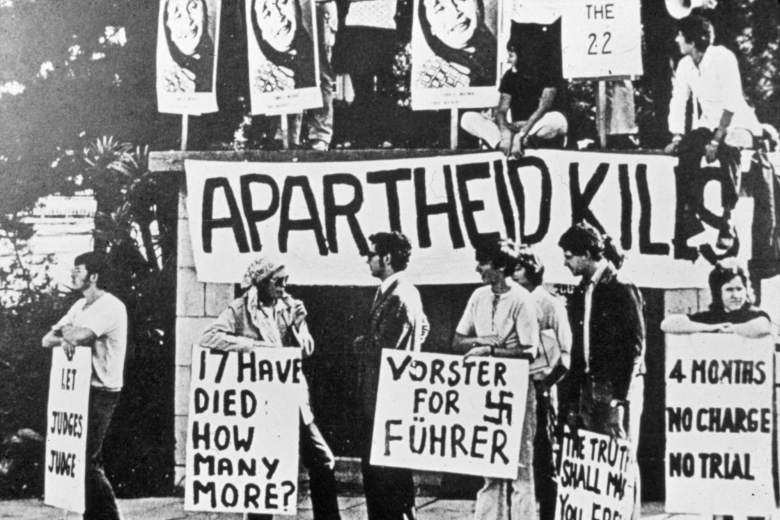The struggle against apartheid in South Africa emerged as a defining moment in the quest for human dignity and equality, not just within the nation but across the globe. The policy of racial segregation that dominated South Africa from 1948 to the early 1990s created a society characterized by profound injustices and palpable inequalities. Yet, the eventual demise of apartheid stands as a poignant testament to the resilience of the human spirit and the power of collective action rooted in shared ethical and moral values, particularly those espoused within the Christian tradition.
To fully appreciate the significance of this historic struggle, it’s essential to consider the theological underpinnings that galvanized faith communities and activists alike. Christianity, with its profound emphasis on love, justice, and equality, played a vital role in fostering resistance against the oppression inflicted through apartheid. As followers of Christ, many were compelled to confront injustice and discrimination with fervent advocacy for justice and compassion.
In light of this, one might ponder: how does a faith community respond to systemic injustice? This question serves as both a reflection and a challenge, inviting believers to consider their roles as agents of change in contexts that mirror the struggles faced during the apartheid era.
The history of apartheid is not merely a chronicle of legal and social injustices; it is also a powerful narrative of hope and reconciliation. Central to this story is the figure of Nelson Mandela, whose unwavering commitment to non-violence and dialogue exemplified an ethos deeply rooted in Christian teachings. Mandela’s leadership was instrumental in uniting a fragmented society, demonstrating that forgiveness and compassion could triumph over hatred and division.
The church’s involvement in the anti-apartheid movement further illustrates the symbiotic relationship between faith and social justice. From the earliest days of the struggle, various Christian denominations took a stand against apartheid policies, often placing themselves at the forefront of activism. The Anglican Church, under the leadership of Archbishop Desmond Tutu, became a moral compass that inspired many to advocate for human rights and equality. Tutu’s calls for peaceful protest and reconciliation resonated with both religious and secular audiences, emphasizing that the struggle for liberation was not merely political but a profoundly spiritual undertaking.
Paradoxically, while Christianity provided a solid foundation for the resistance against apartheid, it also faced challenges within its own ranks. Some churches were complicit in upholding the racial divide, prioritizing allegiance to political powers over the ethical imperatives of faith. This schism forced many believers to reckon with the implications of their faith in action, raising pertinent questions about complicity and responsibility in the face of injustice.
The eventual dismantling of apartheid in the early 1990s was not merely a political victory; it marked a transformation in societal values that reverberated throughout the world. The establishment of a new constitution in 1994, which enshrined equality before the law, was a milestone that echoed the Christian belief in the intrinsic worth of every human being. The preamble of South Africa’s Constitution articulates a commitment to healing the divisions of the past and establishing a society based on democratic values, social justice, and fundamental human rights.
However, the journey toward genuine equality and social cohesion remains fraught with challenges. While the legal frameworks have shifted, the scars of racial injustice linger in the social fabric. One must ask: how can communities, particularly those grounded in faith, navigate the complexities of reconciliation and restorative justice in contemporary South Africa? This inquiry evokes the challenges that lie ahead and the responsibilities that accompany the mantle of faith.
Christian theologians proclaim the imperative of reconciliation, arguing that true healing cannot occur without acknowledging the past. This acknowledgment entails not merely a verbal confession of sins but also an active commitment to rectify injustices. Churches and faith-based organizations have a pivotal role to play in fostering dialogues, promoting understanding, and initiating practical steps towards restitution. The challenge is daunting, but it is one that calls for courageous hearts and committed action.
The examples set by faith leaders during the apartheid era demonstrate that moral courage can catalyze profound societal shifts. This legacy serves as an enduring reminder of the potency of collective action united by a common purpose. Faith communities can galvanize support for community development, education, and equity that transcends mere rhetoric, promoting a vision of a united South Africa where the values of collaboration and compassion flourish.
In this evolving narrative, the legacy of the struggle against apartheid beckons believers to embody the transformative power of love in the face of lingering inequalities. It challenges them to rise above complacency and become active participants in reshaping the world around them. The Christian mandate to uplift the marginalized and advocate for justice remains a clarion call that resonates profoundly in today’s discourse on human rights.
In summary, the ending of apartheid in South Africa encapsulates a pivotal chapter in the annals of history, illuminated by the guiding principles of faith that championed equality and justice. The journey from oppression to liberation is a testament to the resilience of individuals and communities unified in their pursuit of a more just society. It compels ongoing reflection and action, inviting contemporary believers to engage authentically with the enduring challenges of inequality that persist in various forms. Beyond celebrating victories rests the imperative of nurturing a commitment to love, understanding, and justice—principles integral to both faith and humanity. By embracing this challenge, believers can honor the legacy of those who fought against apartheid and continue the work of building a more equitable world.



